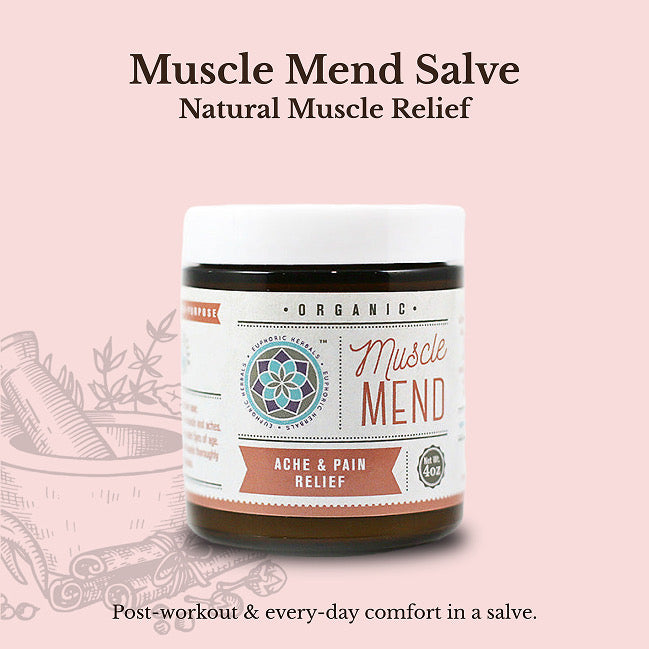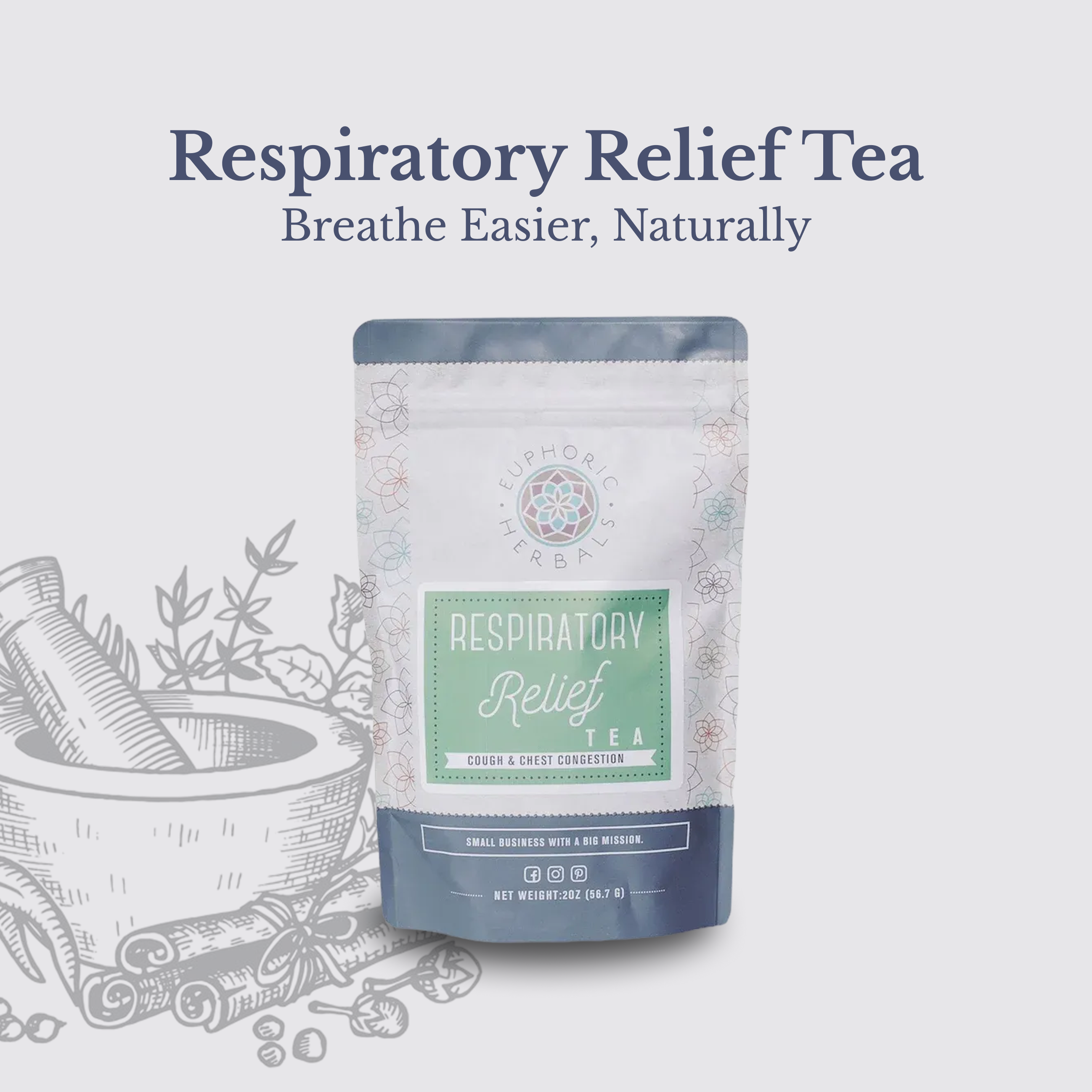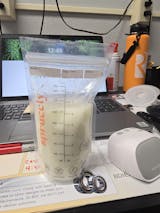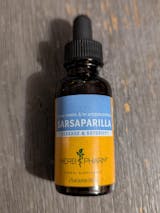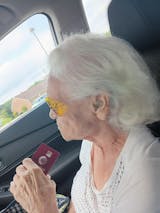Black Midwives we should know: Past, Present & Futuristic
There are a few midwives here I have mentioned who have transitioned and who are currently with us that I thought were worth mentioning that have had an impact in midwifery care within the Black community. Of course this is not all of them but I thought I would pick a few to start one on their journey in seeing the vast history of Black Midwives. The women I have met I have either learned of as I started my midwifery journey in 2004 or have actually met. I have also placed the link for you to read more about them.
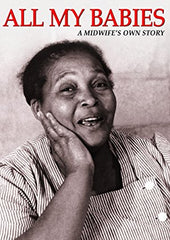 Mary Coley was among the last generation of granny midwives providing care to pregnant women across the rural South. Mary Francis Hill was born August 15, 1900 in Baker County, Georgia. When Mary Coley died in March, 1966 in Albany, she was recognized as a healer, an advocate healthy babies, and a liaison between the healthcare system and her community. She was also hailed as a role model for future generations of women who want to make a difference. she began training as a midwife under the tutelage of Onnie Lee Logan. Coley went on to practice across Georgia as a midwife for more than three decades. As an African American, she became an advocate for the health of Georgia's black population and was known for her willingness to work with women regardless of race in a time of segregation. It is estimated that she delivered over 3,000 babies in her career, and she offered additional services to families such as assistance in cooking, cleaning, childminding, laundering, and helping new parents file official forms and birth certificates. She was known affectionately by her patients as "Miss Mary.
Mary Coley was among the last generation of granny midwives providing care to pregnant women across the rural South. Mary Francis Hill was born August 15, 1900 in Baker County, Georgia. When Mary Coley died in March, 1966 in Albany, she was recognized as a healer, an advocate healthy babies, and a liaison between the healthcare system and her community. She was also hailed as a role model for future generations of women who want to make a difference. she began training as a midwife under the tutelage of Onnie Lee Logan. Coley went on to practice across Georgia as a midwife for more than three decades. As an African American, she became an advocate for the health of Georgia's black population and was known for her willingness to work with women regardless of race in a time of segregation. It is estimated that she delivered over 3,000 babies in her career, and she offered additional services to families such as assistance in cooking, cleaning, childminding, laundering, and helping new parents file official forms and birth certificates. She was known affectionately by her patients as "Miss Mary.
 Ms. Arilla Smiley Mrs. Arilla Smiley, one of the last living granny midwives in Georgia to retire. Mrs. Smiley was trained by the local Health Department in Brunswick Georgia and apprenticed with her mother in law, Mrs. Beatrice Borders (whom she followed in the footsteps of her mother Mrs. Georgia Willams and her Grandmother Mrs. Katie Jones). She received her license to perform midwifery in 1963 and retired in 1987. During a recent conversation I asked Mrs. Smiley how she got involved in birthing babies. She said, “I was called to be a midwife by God. Ms. Bea just took me along with her. If I got concerned about a birth, I’d go to quiet room and pray. You know, you have to talk to God like he’s your friend, that’s how you pray. I’d tell him, now You the One who called me to serve, I didn’t come asking, so I need your help. And He would make things alright, you’ve got to take God with you.” During her career as a midwife, Ms. Smiley delivered over 1,000 babies in Mitchell County. “Mothers would come to us to deliver their baby’s. They would get their prenatal care from the clinic (which ran once a week). If the mother was healthy enough to have her baby at home, the doctor would give her a green card to give me. I couldn’t deliver a baby without that green card.” explained Mrs. Smiley.
Ms. Arilla Smiley Mrs. Arilla Smiley, one of the last living granny midwives in Georgia to retire. Mrs. Smiley was trained by the local Health Department in Brunswick Georgia and apprenticed with her mother in law, Mrs. Beatrice Borders (whom she followed in the footsteps of her mother Mrs. Georgia Willams and her Grandmother Mrs. Katie Jones). She received her license to perform midwifery in 1963 and retired in 1987. During a recent conversation I asked Mrs. Smiley how she got involved in birthing babies. She said, “I was called to be a midwife by God. Ms. Bea just took me along with her. If I got concerned about a birth, I’d go to quiet room and pray. You know, you have to talk to God like he’s your friend, that’s how you pray. I’d tell him, now You the One who called me to serve, I didn’t come asking, so I need your help. And He would make things alright, you’ve got to take God with you.” During her career as a midwife, Ms. Smiley delivered over 1,000 babies in Mitchell County. “Mothers would come to us to deliver their baby’s. They would get their prenatal care from the clinic (which ran once a week). If the mother was healthy enough to have her baby at home, the doctor would give her a green card to give me. I couldn’t deliver a baby without that green card.” explained Mrs. Smiley.
Maude Callen was a nurse-midwife in the South Carolina Low country for over 60 years. Her work was brought to national attention in W. Eugene Smith's photo essay, "Nurse Midwife," published in Life in December 3, 1951.
Margaret Charles Smith (September 12, 1906–November 12, 2004) was an African-American midwife who became known for her extraordinary skill over a long career. Despite working primarily in rural areas with women who were often in poor  health, she lost very few of the more than 3000 babies she delivered, and none of the mothers in childbirth. In 1949, she became one of the first official midwives in Green County, Alabama, and she was still practicing in 1976, when the state passed a law outlawing traditional midwifery. In the 1990s, she cowrote a book about her career, Listen to Me Good: The Life Story of an Alabama Midwife, and in 2010 she was inducted into the Alabama Women's Hall of Fame.
health, she lost very few of the more than 3000 babies she delivered, and none of the mothers in childbirth. In 1949, she became one of the first official midwives in Green County, Alabama, and she was still practicing in 1976, when the state passed a law outlawing traditional midwifery. In the 1990s, she cowrote a book about her career, Listen to Me Good: The Life Story of an Alabama Midwife, and in 2010 she was inducted into the Alabama Women's Hall of Fame.
And there are others before like Mary Jane Trust Lawson who was the first Black Licensed Midwife in Kanawha County, practicing her profession at the old Charleston General Hospital located then in City Park on Farnsworth Drive; as well as midwife Armentia Tripp Jarrett, Lola Coleman and Gwendolyn Spears.
Umm Salaamah She went on to become a certified nurse midwife and has worked with communities across the world, including Georgia, Florida, Texas, Kentucky, Mississippi, Honduras, Ghana, including a maternal health clinic in Senegal. She is focused on ensuring that her knowledge - and the knowledge of elder midwives - gets shared with the next generation of midwives. She serves as the midwifery  director for Birthing Project USA, an organization for improving birth outcomes for people of color. She is a founding member and director of midwifery education of the International Center for Traditional Childbearing, an organization that trains Black women aspiring to become midwives. She is also a founder of Midwives On the Move , a committed group of midwives, aspiring midwives, doulas, nurses, birth activists, consumers and volunteers working in the U.S. and Ghana, West Africa, to exchange midwifery skills, knowledge and ideas.
director for Birthing Project USA, an organization for improving birth outcomes for people of color. She is a founding member and director of midwifery education of the International Center for Traditional Childbearing, an organization that trains Black women aspiring to become midwives. She is also a founder of Midwives On the Move , a committed group of midwives, aspiring midwives, doulas, nurses, birth activists, consumers and volunteers working in the U.S. and Ghana, West Africa, to exchange midwifery skills, knowledge and ideas.
Her goal is to ensure that women have access to community-based midwifery. “I think that every community should have their own midwife, someone who understands their culture who they already trust” Source: Midwives Alliance North America
Jennie Joseph is a British-trained midwife, a women’s health advocate, the founder and executive director of Commonsense Childbirth Inc. and the creator of The JJ Way®. She moved to the United States in 1989 and began a journey that has culminated in the formation of an innovative maternal child healthcare system, markedly improving birth outcomes for women in Central Florida.
Sarahn Henderson Sarahn Henderson is traditional midwife of Birth in the Tradition. She is the mother of five adult children all who were born at home. Homebirth was a choice of birth she and her husband made beginning with their first child. This was a decision based on the holistic lifestyle they chose to live. A few months after giving birth to her first child, She was invited to attend her midwife’s very own birth. That same evening after her midwife gave birth, and (impressed with Sarahn’s patience and touch) she invited to initiate her into  midwifery. And she did since 1980 and to her credit, Sarahn has assisted and “midwifed” hundreds of families into parenthood. In that count, she has assisted in five twin births (three in which she was the principal midwife) and countless breech deliveries. Her role models were the Granny Midwives (respectfully called Grand Midwives today). She recalls “back in the days, when home birth and midwifery services were the norm, Grand Midwives had no choice but to deliver twins and breeches. They believed in themselves and often times felt like their work was “a calling”. They were not fearful of any births; they were simply regarded as variations of normal birth and God guided their hands.”Sarahn has also apprenticed over a dozen women who chose to study and practice midwifery. Some of these women have gone on to become MD’s, nurses, midwives (hospital and in-home) and public health professionals. Her vision is that homebirth will become nationally recognized as a safe alternative to hospital births (for the low risk mother) and that midwifery will become a licensed profession in the maternal healthcare system.
midwifery. And she did since 1980 and to her credit, Sarahn has assisted and “midwifed” hundreds of families into parenthood. In that count, she has assisted in five twin births (three in which she was the principal midwife) and countless breech deliveries. Her role models were the Granny Midwives (respectfully called Grand Midwives today). She recalls “back in the days, when home birth and midwifery services were the norm, Grand Midwives had no choice but to deliver twins and breeches. They believed in themselves and often times felt like their work was “a calling”. They were not fearful of any births; they were simply regarded as variations of normal birth and God guided their hands.”Sarahn has also apprenticed over a dozen women who chose to study and practice midwifery. Some of these women have gone on to become MD’s, nurses, midwives (hospital and in-home) and public health professionals. Her vision is that homebirth will become nationally recognized as a safe alternative to hospital births (for the low risk mother) and that midwifery will become a licensed profession in the maternal healthcare system.
Martine Jean-Baptiste has been involved in women’s health since 1986 after graduating with her bachelors of science in nursing from the College of Mount Saint Vincent. She has worked with women and their families throughout the lifecycle in a variety of settings. Professional roles include registered nurse at St Luke’s Roosevelt Hospital, Allen Pavilion, Elizabeth Seton Childbearing Center (a free-standing/out-of-hospital birth center) and the Center for Community Alternatives. She started a solo private practice childbirth education and professional labor support (doula) service. Ms Jean-Baptiste graduated from State University of New York, Downstate with an MS in midwifery in 2000. As a licensed midwife, she worked at St Barnabas Hospital as well as Elizabeth Seton Childbearing Center. In June 2002, Ms Jean-Baptiste and her business partner, Karen Jefferson, started their home birth practice, JJB Midwifery. They provide preconceptual counseling, well woman gynecology, contraception and home birth in New York City. Ms Jean-Baptiste strongly believes in women’s innate ability to care for themselves and their families. She believes in “supporting women’s right to safe, supportive, and informed healthcare throughout the lifecycle.” She is a founding board member and president of FAHM educational non-profit organization dedicated to supporting and aiding Haitian midwifery associations, education programs and midwifery students living in Haiti, where there are high rates of maternal and neonatal morbidity and mortality.
Memaniye Cinque is a certified Nurse Midwife - it was because of I her was able to see my first actual birth. Memaniye has been a Midwife since 1998 when she graduated from SUNY Health Science Center at Brooklyn. She has worked in hospital and birthing center settings and have been in the homebirth setting since 2001 when she took on her first “private practice” client. She has been a labor and delivery nurse for 10 years prior to returning to school for midwifery. My path to Midwifery started in 1987 when she gave birth to my son at home. He was her second child. She had her first in a hospital and the two experiences were like night and day. She decided in that moment, feeling the euphoria of that experience, that assisting women in childbirth at home with as many loving, supportive people around her as she wanted was THE THING to do in my life. As she would say it took her awhile to get here and the road wasn’t easy but the joy of the work has balanced out the difficulties.
Asasiya Muhammad training as a professional birth worker began in 2009 when she became a Doula through toBirth (formerly ALACE). She attended births in various settings, principally in the hospitals, where I not only provided labor support but also served as an advocate for the mother and family against unnecessary medical interventions and towards safeguarding the birth and postpartum plan. Her work as a Doula was a great introduction to the field. As a doula, her primary responsibility was to offer techniques to ease the laboring process as well as be source of emotional and moral support. Unlike doulas, midwives provide full-spectrum care for women throughout pregnancy and birth. She is trained to manage the birth for safety, "catch the baby", and intervene when it is necessary.
With the support and encouragement of her loving mother as well as of her mentor and Grand Midwife, Hafiza Rashid, she began her formal midwifery training in 2011 at Maternidad La Luz (MLL), a nationally accredited Midwifery school on the U.S./Mexican border in El Paso, TX. As a student midwife, she studied the art, science, and history of the field while honing critical skills at the accompanying high-volume birth center. 95% of our clientele were the brave women and families of Ciudad de Juarez in Chihuahua, Mexico. It was an incredibly humbling experience to work with the women of Juarez. heir stories, along with the bond of sisterhood that she formed with my fellow students amidst a year of extreme emotional and physical demands deepened her love and respect for all women. It was a true testimony that in the face of all challenges we are, in fact, perfect allies!
In 2012, she began working as the 2nd midwife to Christy Santoro, CPM of Motherland Midwifery. This partnership has opened the door to offer balance and diversity in the birthing community, and introduce Inner Circle Midwifery's brand of service to the families of Philadelphia.
Racha Tahani Lawler is a California licensed midwife, skilled in the midwifery traditions of her Southern U.S. and South African ancestors. She is the direct descendent of midwives, dating back four documented generations. Racha  obtained her formal education in hospitals as a nursing student and at the historically accredited midwifery school Maternidad La Luz. She ultimately chose traditional midwifery without nursing school, and obtained her license to practice midwifery in 2004 after the home waterbirth of her first born son. All three of her children were born at home in water, post due date and they have attended well over 280 births either carried on her back or sitting at her side.
obtained her formal education in hospitals as a nursing student and at the historically accredited midwifery school Maternidad La Luz. She ultimately chose traditional midwifery without nursing school, and obtained her license to practice midwifery in 2004 after the home waterbirth of her first born son. All three of her children were born at home in water, post due date and they have attended well over 280 births either carried on her back or sitting at her side.
While successfully managing & operating her own homebirth midwifery practice, she also supported others in starting and operating birthing centers. In 2011 with the support of family & friends she opened “The Community Birth Center” where she would go on to serve hundreds who journeyed from all parts of Southern California to Los Angeles. Promoting the successful “Free Friday” program, inspired by Florida licensed midwife, mentor and friend, Jennie Joseph. Racha and supervised midwifery students provided well woman / well person exams, STD/STI testing and education, prenatal care, postpartum care, breastfeeding support & education, only charging for discounted lab fees.
After five years and a overwhelming desire/calling to reclaim traditional South African midwifery practices, Racha closed The Community Birth Center in 2016.
Still fighting everyday to reduce prematurity rates in descendants of Africans, who rank the highest in maternal & infant morbidity. Racha is the recipient of both California Congressional and Senate awards for her work as a community midwife. She’s acknowledged and awarded by the City of Los Angeles and local counsel member for her community health work. In 2013 was privileged to receive the “Midwife of the Year” award from the Doula’s Association of Southern California. In March of 2015, she received the Lillian Mobley Community Service Award for her commitment to serving the community- and missed her presentation while midwifing at a birth!
Racha works as a midwife attending to families in home birth, water birth, and occasionally labor support in hospital (montrice services), not only in Los Angeles California but worldwide; flying as far as client’s need, from the East Coast to South Asia and everywhere in between. Firmly committed to providing midwifery care regardless of race, socioeconomic status or gender, she is blessed to have attended well over 1,200 birth in the United States and abroad.
In 2017 Racha finally made her way to Katlehong, South Africa where she was able to be immersed in traditional Zulu healing & midwifery teachings lost in the African Diaspora and the U.S. slave trade. Reclaiming not only the historical first healers & midwifery teachings but specifically those of her South African ancestors.
On August 14th 2017 Racha Tahani Lawler was officially recognized by the South African government as a Traditional Healer, Sangoma and Umbelethisi/Midwife. She was humbly initiated into the Zulu nation and continues her Zulu and isiZulu language education. Maintaining her African and American midwifery matriarchy birthright.
As you can see Black midwives history runs deep and range from the traditional midwife to the certified nurse midwife (TM, CPM, CM, CNM). And if you didn’t know “despite a long history of midwifery in the black community, black women currently represent less than 2% of the nation's reported 15,000 midwives.” Keisha La'Nesha Goode, Graduate Center, City University of New York10/2014
About the author Barbara Vernéus has been a trained Birth Companion (doula) since 2004. In 2006, Barbara went overseas through the African Birth Collective to Senegal, West Africa assisting midwives in labor and delivery. In 2008, she obtained a Graduate certificate from Boston University in Maternal and Infant Care in Public Health. Barbara received her Master’s in Counseling with a concentration in Marriage and Family in 2016. Barbara has also written for Mater Mea; Mothering Naturally, Black Women Birthing Justice; MadameNoire and #NoPrivateParts. Since moving to Texas in June 2016 she conducted the first ever Black Breastfeeding Week event in Dallas, TX in 2016. With the partnership of Counter Balance Austin she was able to create Black Breastfeeding Week the following year in Austin, TX. She has also been a speaker at Juneteenth Health Fest in Austin, TX where she spoke on Midwives and Birth Companions: Improving Outcomes in our Communit
Barbara Vernéus has been a trained Birth Companion (doula) since 2004. In 2006, Barbara went overseas through the African Birth Collective to Senegal, West Africa assisting midwives in labor and delivery. In 2008, she obtained a Graduate certificate from Boston University in Maternal and Infant Care in Public Health. Barbara received her Master’s in Counseling with a concentration in Marriage and Family in 2016. Barbara has also written for Mater Mea; Mothering Naturally, Black Women Birthing Justice; MadameNoire and #NoPrivateParts. Since moving to Texas in June 2016 she conducted the first ever Black Breastfeeding Week event in Dallas, TX in 2016. With the partnership of Counter Balance Austin she was able to create Black Breastfeeding Week the following year in Austin, TX. She has also been a speaker at Juneteenth Health Fest in Austin, TX where she spoke on Midwives and Birth Companions: Improving Outcomes in our Communit
But her biggest accomplishment is having her daughter Glorious-Zoëlle. This was the pinnacle event in her life that confirmed why she should finally study and train to become a midwife, now or never. She relocated to Texas from the east coast to follow her dream of being a Certified Professional Midwife. She is currently enrolled in Mercy In Action’s online Midwifery program while apprenticing. Barbara is a strong advocate in being an instrument of healing to women, mothers and mothers-to-be who have experienced trauma; while inspiring more Black and Brown women to enter the birth work field. Barbara Verneus is also the founder of Tiny & Brave Holistic Services; a blogger; maternal life coach, while being mother of one.
Get In Touch
Instagram Facebook Website
Email: tinyandbravedoula@gmail.com
Interested in writing for our blog?






















































































































































































